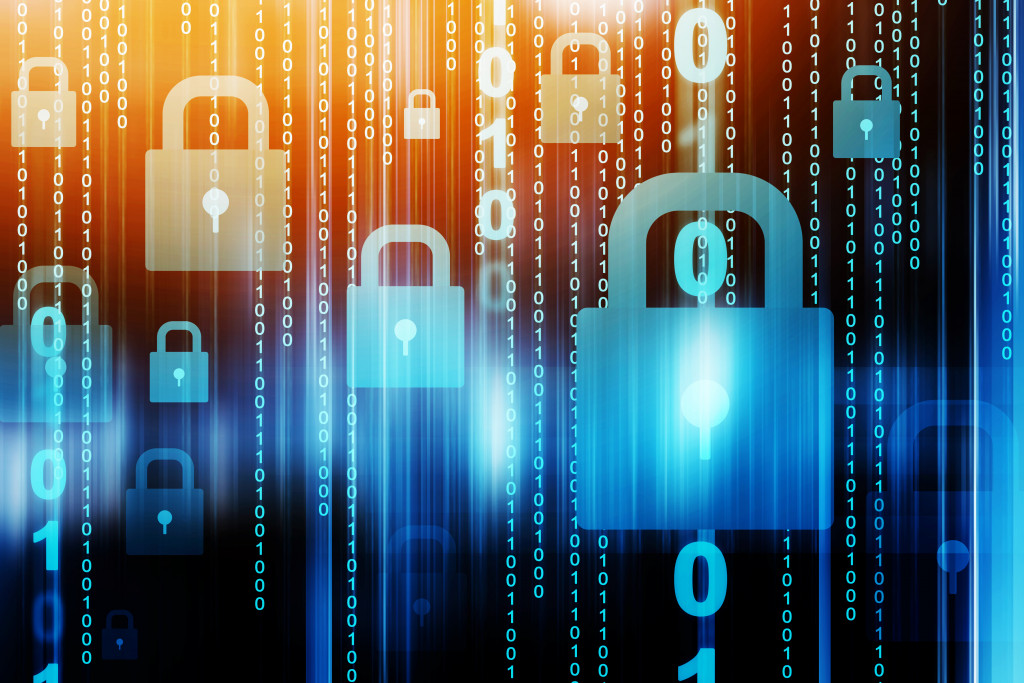Websites, network applications, and even cellphones and other devices are prone to hacking and data security breaches. Hackers can steal vital information, including bank details, emails, login information, messages, photos, and many other important data and private information. They use what they have stolen to earn money by selling them to third-party brokers.
Data hacking can be very detrimental to organizations. It can make them lose millions apart from the fact that they already have some of their vital information known to unauthorized groups of people. This is the very reason why cybersecurity is essential for businesses of all sizes. Each business should take some steps to secure their network computers, gadgets, websites, and many other types of portals to make sure that no unauthorized persons will be able to gain access and steal their important data.
Below are some ways that organizations can protect their valuable data from hackers and other cybercriminals.
Perform Regular Network Testing
Organizations should constantly be wary of vulnerabilities in their IT infrastructure. They should continually check and perform network penetration testing so that they can readily resolve any vulnerability in their systems. Pen testing is basically a legal form of hacking wherein the security of a network is tested through the use of systematic probing that allows the discovery of vulnerabilities.
It also makes it possible to identify potential application flaws and improper configurations that may lead to system vulnerability. With pen testing, an organization can spot suspicious end-user behavior and block potential cybersecurity hazards before they escalate into bigger problems.
Use Complicated Passwords
Data security breaches sometimes happen due to passwords being too easy to decipher. Securing passwords and making them hard to guess is an important step in preventing network intrusions. Hackers will have a difficult time invading a system if a more intricate password is used. Intricate passwords are often longer and more complex and may comprise a combination of uppercase and lowercase letters, numbers, spaces, and special characters.
Hackers usually have tools that help them break short and easy passwords in just a short period. By using longer, more complex passwords, it will take them some time before they can decipher the password and break into the system. Changing passwords on a regular basis should also be a frequent practice.
Install a Firewall
Firewalls are the barriers between an organization’s important data and the outside resources. They monitor incoming and outgoing traffic and either permit or block data packets based on a given set of security rules. They are essential in blocking malicious traffic and viruses that may be used by hackers to enter the organization’s internal system. Hackers often use spyware or malware, a program that allows them to infiltrate an organization’s system and obtain privately hidden information. Robust firewalls act as a shield against these programs, keeping the organization’s network safe from the dangers of cybersecurity.
Make Use of Antivirus Software
Viruses can delete important files, damage programs, and reformat hard drives. They also slow computers and other devices down. Other types of viruses can also replicate and flood internal networks with unnecessary traffic, making it futile to perform any form of activity. To prevent this from happening, it is essential to install antivirus programs across all devices. These programs can block security threats made to computers and other devices. They thwart unauthorized codes and software that may gain access to devices and threaten the operating system.
Make Backups

Computer hard drives are vulnerable to viruses and other forms of cyberattack. Due to their vulnerability, it is important to keep backups of all files and data on a regular basis. Not creating backups can spell a disaster. Once hackers succeed in getting through and hacking the organization’s system, files may get lost and may no longer be retrieved, leading to a significant loss. Backups help prevent data damage in cases of a security breach.
Data backups can be done in a variety of ways. They can be done through the cloud or through external drives that include USB sticks, networked attached storage, or by having printed copies of all data.
Employ Two-Factor Authentication
Passwords serve as the first line of defense against unauthorized access to data. But passwords are sometimes vulnerable to hackers due to their nature. Because of this, the second line of defense is recommended. Two-factor authentication helps boost security and data privacy.
Hackers always seem to find ways to gain access to systems even when there are security measures put in place. Just the same, it is always better to have security protocols in place than none at all.

















